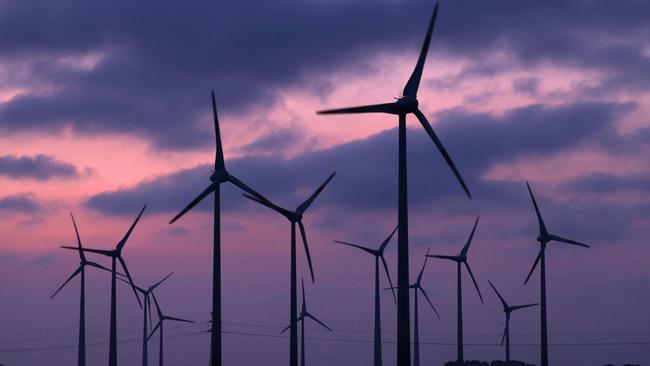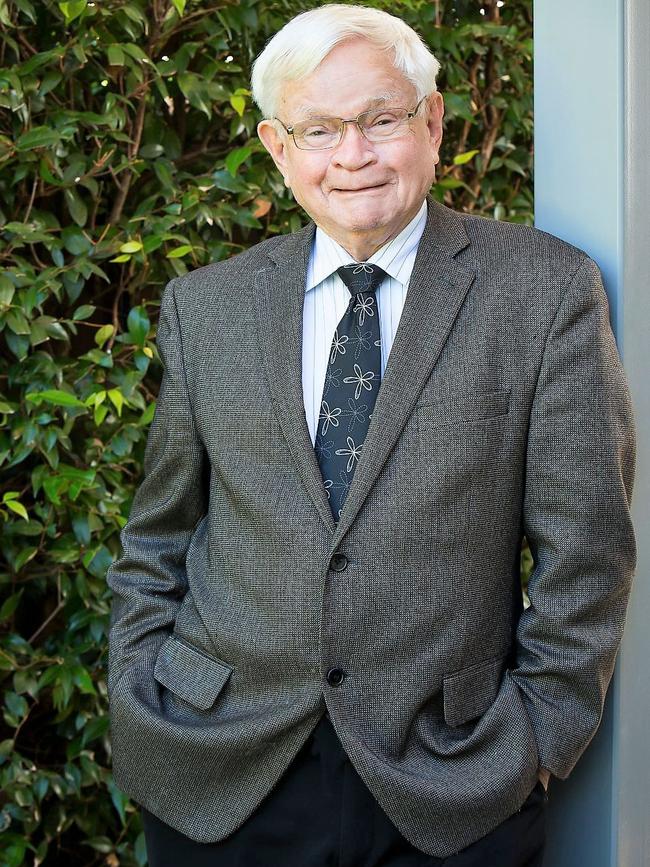Vikki Campion: Ivan Kennedy’s research suggest wind farms could make bushfires worse
Renewable energy advocates love to tell us to trust the science, writes Vikki Campion, but if the science doesn’t suit their agenda they ignore it.
Opinion
Don't miss out on the headlines from Opinion. Followed categories will be added to My News.
Trust the science, they screech, and if the science doesn’t suit your agenda, ignore it.
Energy bureaucrats in Sydney, Canberra and Perth have repeatedly fobbed off senior experts who hypothesise a drying effect downwind with the potential to increase both the risk of bushfires and their intensity, and who urge research into the local meteorological effects of massive wind turbine precincts.
Highly credentialed Emeritus Professor Ivan Kennedy’s burden is truth-seeking, or as he puts it, “the primacy of reason over emotion”.
In conducting wind power research in 2023, Prof Kennedy was shocked by the release of local heat downwind, which was much higher than researchers first thought.
His letters asking for research on wake effects from wind turbine precincts under Australian conditions, using peer-reviewed papers, were met with a thank you letter from government departments and subsequently ignored.

Prof Kennedy closed his lab last year and stands to receive no monetary gain.
“Everyone says to trust science, but where is that science that gives us certainty?” Prof Kennedy said.
“Essentially, comparisons regarding landscape drying between upstream, more laminar airflow and retarded, turbulent downstream wakes is needed. “One thing is certain, considering the scale of the potential worst-case risks, the complete absence of ecological research in hot, dry countries like Australia is a failure in due diligence.”
In science, you propose a hypothesis and then test to disprove it. He sees it as his duty to ask for the hypothesis to be disproven, which is research that would cost little.
Prof Kennedy believes that considering the scale of the potential worst-case risks, the complete absence of meteorological research in hot, dry countries like Australia could fail due diligence.
What is the cost of drying out a district? That can be found in the future as class actions by farmers or fire brigades.
And they will have a case.
There’s been almost no meteorological research on the wake of wind farms in Australia, and Prof Kennedy says he wants to see evidence in one way or another.
Have we gotten to the point that we cannot even test it, when governments happily throw billions of dollars at testing green hydrogen, which has never been commercially successful and needs a technological breakthrough at every stage of the supply chain to be economically viable?
Did AEMO give note to this? No.
Did the GenCost report? No.
Yet these reports are held up as the gold standard manual.
The problem is that the debate over wind factories has been hijacked by people using emotion for pecuniary gain, leaving the debate no longer scientific but political.
For the developer, it’s about how much money they can make.
The only reliable thing is that Prof Kennedy will suffer a vendetta like anyone else who speaks against it.
Anyone who objects to wind factories is a climate-denying troglodyte or fossil-fuel-funded NIMBY or any other aspersion cast on the character, which stands as a proxy for a cogent argument.

According to the latest figures compiled by Steven Nowakowski, who publishes must-see videos of pristine bush hilltops blown up for wind, in NSW, 849 turbines are operating, with 609km of roads to them built, and 1835ha disturbed.
To come in the planning pipeline is 6701 turbines, 6649km of new roads built and ripping up 27,846 ha.
That’s the equivalent of ripping up every beach, every park, home and cafe from Manly to Cronulla and inland past Strathfield and lumping in 300m-high turbines – bigger than Sydney Tower, concrete pools of cement, and roads to nowhere.
Of course, spread out, the affected space is hundreds of thousands of square kilometres inland and out to sea, with noise, vibration and light impacts.
Yet mums on 10 acres of bush are subjected to shakedowns by wind developers, claiming coal companies are sponsoring them – and not fighting gross industrialisation.
People do not realise the ogres they support when they bleat about the benefits of intermittent power.
It is as if farmers are not fighting for their agricultural future, as their land is cut up for massive 500-kilovolt transmission lines.
Governments should make decisions after they attain all the facts, not with a cult-like attachment to one side and a wilful disdain of any contrarian view.
Prof Kennedy, who is no climate sceptic, will upset their paradigm. If you are seeking truth, you have to be prepared for that.
What remains to be seen is what survives this report: wilful ignorance or, in Prof Kennedy’s words, the “primacy of reason over emotion”.




